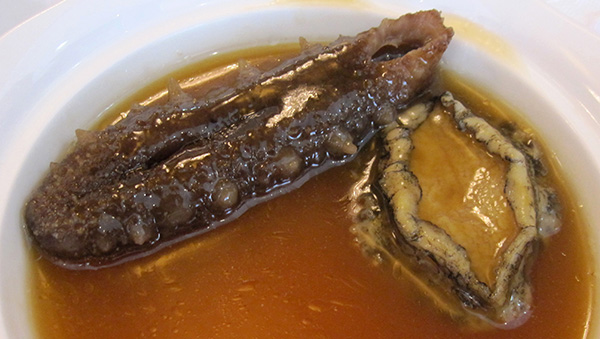Sea Cucumbers
Alive, they look like spiky slugs, but preserved on the supermarket shelf they better resemble charred sausages. They are called sea cucumbers, and for a thousand years in China, eating these strange, gelatinous creatures has been an exalted symbol of wealth and prosperity. Despite their once staggering price tag - roughly $163 a piece, or the equivalent of 4,000 steamed buns, another Chinese culinary staple - government officials once reportedly ate at least one sea cucumber a day.Now, in an attempt to counter the image of Communist Party officials as lavish, epicurean characters who gorge on imported wines and exotic foods, Chinese President Xi Jinping is implementing budget restrictions intended to curb the refined tastes of the party's elite. And the first victims of his crackdown appear to be the more than 40 edible species of sea cucumbers.
In Beijing, China's austerity measures have caused dramatic cuts at high-end restaurants and caterers, which once relied on official bureaucratic events as a large chunk of their revenue. The result: the market for high end sea cucumbers has collapsed in China, and some of these cylindrical sea-dwellers are reportedly selling for as little as one-third the usual price on the streets of of the Chinese capital.
Though sea cucumbers are largely tasteless (just ask Bear Grylls), they are high in protein, low in fat and contain mucoitin, a chemical believed to be an aphrodisiac and an anti-aging agent, among other things. But that alone doesn't explain their popularity in China. "It's a mark of pride [for Chinese parents] to have kids that eat sea cucumbers ...".
Before the crackdown, for instance, Chinese demand for sea cucumbers was so high that it reportedly set off a goldrush halfway around the world in Mexico. Overfishing became such a problem, that Mexican authorities even banned catching these slimy-looking critters...
From Reuter's May 2014 "China's hunger for sea cucumbers reaches islands of Sierra Leone"
"Wild American sea cucumber latest craze in China" http://www.seafoodsource.com/news
By Mark Godfrey, SeafoodSource contributing editor reporting from Beijing, China
"The sea cucumbers from America are wild so they taste much better than sea cucumbers from China which are all farmed..."
Leading local cultivators of cucumbers have also been opening stores. Praised for their apparent medicinal properties, sea cucumbers have become a sought-after commodity in China, yet leading cultivators have struggled in 2012 with falling prices. Headquartered in the coastal city of Weihai, Shandong Homey Aquatic Development Co in 2012 processed 2,928 tons of sea cucumber, compared to 2,282.7 tons in 2011. Yet prices slipped over 10 percent to CNY 167 (USD 27, EUR 21) per kilo, according to the firm's own results filings. Homey has attempted to increase its penetration of smaller-sized cities and the middle class by opening 18 own-brand and 74 franchise stores around China in the past year.
